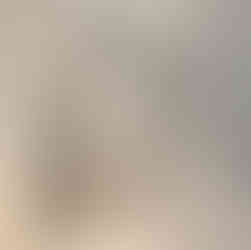Reading Blog #1
- Becca Blum
- Feb 1, 2023
- 2 min read
Something I found interesting about the article was the idea of a candid selfie versus a selfie taken to express a certain emotion or idea.
The only selfie I've taken lately was last week when I was on the way home after being sedated for some dental work. What is interesting about this selfie is that it is a candid shot. I did not try to take the photo from my "best angle" - the sedation drugs caused me to not really care about things happening. It is quite strange out-of-body memory because while I remember taking the photo, I don't remember doing it for any particular reason. I am also not making a funny face, like one might do when their face looks "funny". You can see that I am smiling (as well as my face being swollen from numbing injections, and my lip broken from my mouth being opened too quickly), but really I just am existing.
Looking at the photo, I keep thinking "this is a horrible photo of me! Why am I releasing this to the internet?!". But this is it. The influence of the modern selfie of social media. When I was younger, I was taught by cultural observation that when you post a selfie to the internet, it has to be "perfect", "sexy", "beautiful".
I have a few moles and a few large freckles on my face. But when I drew the image next to post-numbed-and-sedated-Becca, I did not draw them in. I remember adding them in a self portrait painting and my peers asked me why I had drawn "weird dots" on my face. It turned out they never had noticed that they were on my face. Its odd to think that either they never really looked at my face or they subconsciously erased them from their mind. Did the new culture of digital selfies cause this? Or was it simply a coincidence?
When I search the the word "selfie" in google, this is the first image that comes up. It leads to an article about "how to take a good selfie". This is interesting in another way because when the first selfies, aka self portraits, were made, it was only the artist who could create a good image. Now, using helpful online articles, we can all take a "good" selfie.

Albrecht Durer's forward facing self portrait is very interesting in that it almost looks like a photograph. This speaks to his exquisite ability to capture realism in paintings, but also is one of the closest things to a modern day selfie taken out of curiosity of one's self image. The tufts of hair at the top of his head could be tamed, but they are not. This image is a snapshot of who he was when he was painting the piece, very much like if I were to grab my phone and take a picture of myself without changing anything before hand.








Comments